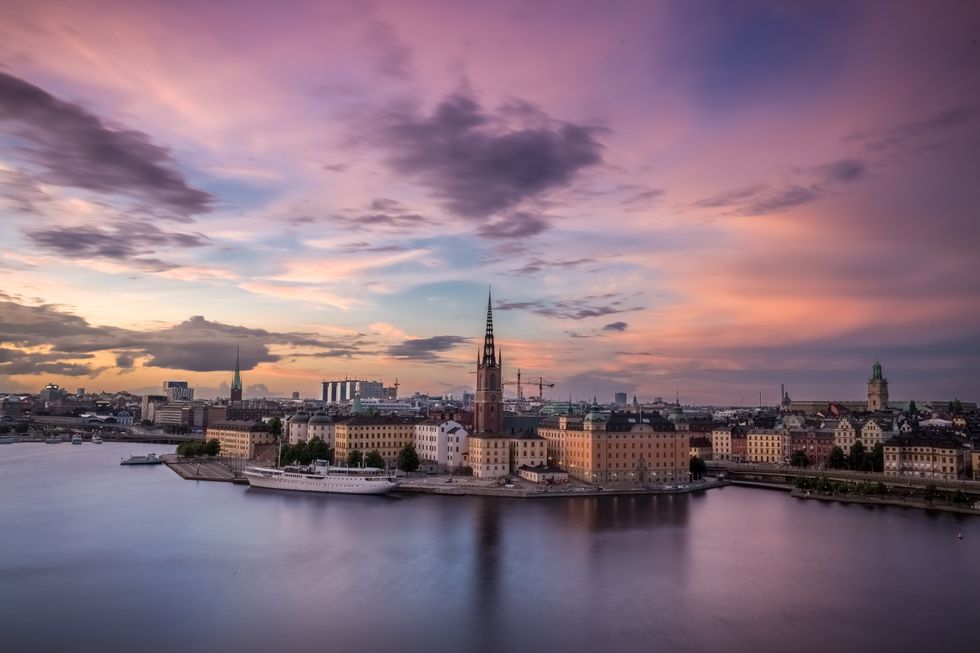According to Merriam-Webster, socialism is defined as: "Any of various economic and political theories advocating collective or governmental ownership and administration of the means of production and distribution of goods."
The most important reason that Sweden is not socialist is: the government does not own the means of production. In fact, they have a freer market than the United States. Swedish historian, Johan Norberg, explains that "when it comes to free markets, when it comes to competition and when it comes to free trade, Sweden is actually more free market [than the United States]."
Norberg is the host of a documentary called "Sweden: Lessons for America?" in which he discusses why defenses of socialism based on the success of Nordic countries are unevidenced and wrong.
Norberg admits that there was a point in history where Sweden's government did resemble socialism, in the 1970s and 1980s, during which the government taxed and spent heavily. The result, he explains was "[the] economy in crisis, inflation reached 10%, and for a brief period, interest rates soared to 500%. At that point, the Swedish population just said, 'Enough, we can't do this.'" After the brief experiment, it was over. Today's Sweden is not socialist.
The reason many fierce protectors of socialism cite Sweden and other Nordic countries as their prime example is that Sweden has a larger welfare state and higher taxes than the United States. As I mentioned earlier, however, their market is freer than ours.
Sweden is a gleaming, successful country that socialists and "democratic" socialists point to as a socialist success story in order to sell it here in America. If you want to see a real example of socialism, where the government owns the means of production, Norberg says you would have to go to Cuba, Venezuela, or North Korea.
They don't use real examples of socialism, because socialism has no success story.
If socialists campaigned with the example of Venezuela, which would be truthful advertising, no one would join their cause. Today, Venezuelans wait in lines for a diminishing supply of food, experience widespread blackouts, and have an inflation rate projected to hit 10,000,000% this year. This is socialism.
It's not full of glitz, glamour and happy faces of people whose government has provided for them. The reality is astronomical tax rates, a government whose spending severely outweighs its revenue, and a decrease in quality of life for the masses.
In America, we have economic inequality, but our "poor" are better off than the majority of the world's population. According to a Forbes article, "The poor in the US are richer than around 70% of all the people extant."
It seems that proponents of socialism would rather have a society in which everyone is equally impoverished.
The other aspect that socialism lacks, but capitalism has in spades is social mobility. People have the opportunity to move from one socioeconomic class to another through the free enterprise system. In a socialist society, everyone is in the same socioeconomic class with no means of ever moving higher.
The socialist illusion is that when someone becomes wealthier, someone else becomes poorer. This is false. For example, a Forbes article discussing poverty and economic inequality states, "Roughly one billion people in China alone have been lifted out of poverty in about two generations. This has been accomplished through the introduction of more capitalism into the Chinese economic system."
While economic inequality in China has increased, poverty has decreased. The two are not associated. Regardless of the difference in wealth, they have all become wealthier.
Capitalism allows creativity to flourish, and people to produce new ideas. Those ideas can be further innovated by other people, and all of these things increase the quality of life within society. People can create their own success, and grow their wealth. This would not be possible in a socialist society.








 The minimum wage is not a living wage.
StableDiffusion
The minimum wage is not a living wage.
StableDiffusion
 influential nations
StableDiffusion
influential nations
StableDiffusion












